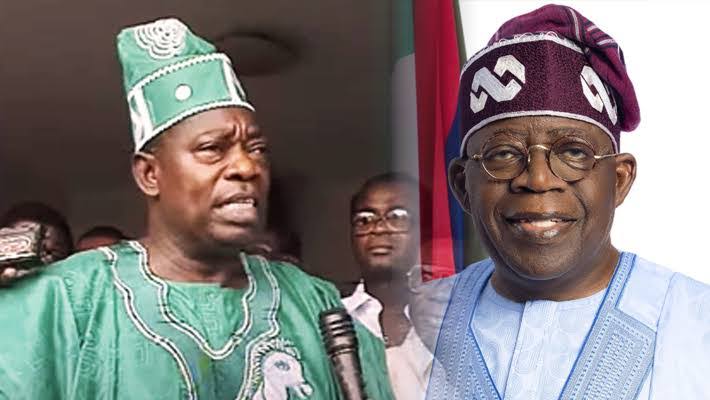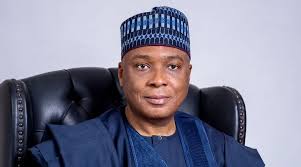MKO Abiola’s Son Asserts Nigeria Would Have Been Better Under His Father’s Presidency
Abuja, Nigeria – Decades after the annulment of the June 12, 1993 presidential election, widely considered Nigeria’s freest and fairest, one of the sons of the presumed winner, Chief Moshood Kashimawo Olawale Abiola, GCFR, has voiced a powerful and lamenting perspective on the nation’s trajectory. In a statement that resonates deeply within Nigeria’s complex political history, he asserted that had his father’s mandate been actualized, the country would undoubtedly be in a significantly better state today.
The assertion, reportedly made by [Insert Son’s Name Here – Please replace with the specific son mentioned in the source article, e.g., Kola Abiola], comes at a time when Nigeria continues to grapple with numerous socio-economic challenges, including inflation, security concerns, and a persistent quest for national unity and progress. His statement serves as a poignant reflection on a pivotal moment in Nigerian history and the “what-ifs” that continue to shape public discourse.
Chief MKO Abiola, a prominent businessman and philanthropist with extensive connections across Nigeria’s ethnic and religious divides, contested the 1993 presidential election on the platform of the Social Democratic Party (SDP). Running against Bashir Tofa of the National Republican Convention (NRC), Abiola’s campaign, famously tagged “Hope ’93,” captured the imagination of millions and transcended regional and religious barriers, offering a glimpse of a truly united Nigeria. The results, though never officially declared by the military regime of General Ibrahim Babangida before the annulment, indicated a clear victory for Abiola, based on collated results widely reported by the media at the time.
The subsequent annulment of the election by the military government plunged Nigeria into a deep political crisis, igniting widespread protests and setting off a chain of events that ultimately led to Abiola’s arrest in 1994 after he declared himself president. He remained incarcerated until his sudden death in detention in July 1998, a few weeks after the death of military dictator Sani Abacha and just as Nigeria was transitioning towards civilian rule. Abiola’s struggle and sacrifice are often credited as catalysts for the nation’s return to democracy in 1999. June 12 is now officially recognized as Democracy Day in Nigeria, a testament to the significance of the 1993 election and Abiola’s enduring legacy.
According to [Insert Son’s Name Here – Use the same name as above], his father possessed a unique vision and capacity for leadership that would have fundamentally altered Nigeria’s development path. He reportedly highlighted Chief Abiola’s entrepreneurial spirit, his deep understanding of the Nigerian populace, and his demonstrated ability to unite people from diverse backgrounds as key factors that would have translated into effective governance.
In making his case, [Insert Son’s Name Here] is reported to have drawn comparisons between the hopes and aspirations of 1993 and the present realities faced by Nigerians. The core of his argument appears to be that his father’s leadership would have fostered greater economic stability, reduced corruption, and built a more inclusive society, leveraging his widespread popularity and national mandate to implement transformative policies.
“Considering the challenges we face today – the economic hardships, the divisions, the slow pace of development – it is hard not to look back at 1993 and wonder what could have been. My father had a plan, a genuine connection with the people, and the will to implement change. I firmly believe Nigeria would be a far better country economically, socially, and politically if he had been allowed to lead.”
This statement encapsulates the sentiment that the annulment of the 1993 election represented not just the truncation of a democratic process, but the subversion of a potential era of national progress under a leader who many believed had the popular mandate and the unique attributes to unite the country and drive development.
The son’s comments underscore the lingering impact of the annulled election on the national psyche. For many Nigerians, June 12, 1993, remains a symbol of both democratic potential and profound injustice. Arguments about the election’s outcome often intertwine with contemporary discussions about governance, leadership, and missed opportunities. The assertion that Abiola’s presidency would have led to a “better Nigeria” reflects a belief that the nation lost a chance to elect a leader who embodied unity and popular will, thereby setting a different, potentially more prosperous, course.
Analyzing the son’s perspective requires acknowledging the multifaceted nature of MKO Abiola’s legacy. While undoubtedly a symbol of democratic struggle and popular resistance, assessing the potential performance of his presidency involves speculation. However, the son’s claim is rooted in the tangible qualities and actions of his father prior to and during the 1993 campaign – his national acceptance, his business acumen, and his political messaging focused on hope and unity.
The present political climate in Nigeria, marked by debates over economic reforms, national security, and political stability, provides a fertile ground for such reflections on the past. The son’s statement can be seen as a commentary not only on his father’s legacy but also on the current state of affairs, implicitly suggesting that the leadership and vision he believes his father possessed are still lacking in many aspects of governance today.
Furthermore, the statement serves as a reminder of the sacrifices made during the struggle for democracy in Nigeria. The Abiola family, in particular, bore significant hardship following the annulment and Chief Abiola’s subsequent detention and death. The son’s reflection is thus also a personal one, tied to the family’s experience during that tumultuous period.
While historical ‘what-ifs’ can never be definitively proven, the assertion by MKO Abiola’s son highlights a persistent narrative in Nigerian political discourse: that the annulment of the 1993 election was a defining moment that potentially redirected Nigeria away from a path of greater progress and unity. His statement invites renewed reflection on the principles and aspirations that defined the June 12 struggle and their relevance to Nigeria’s ongoing journey towards development and stable democracy.
The comments are likely to reignite discussions among political analysts, historians, and the general public about the enduring impact of the 1993 election, the leadership qualities Nigeria needs, and the potential consequences of allowing popular mandates to be undermined. They serve as a powerful, albeit speculative, reminder of a potential future foregone and a challenge to contemporary leaders to strive for the vision of unity and progress that MKO Abiola represented for many Nigerians in 1993.
Ultimately, while the claim that Nigeria would have been better rests on counterfactual history, the statement by MKO Abiola’s son is significant as a continuation of the dialogue surrounding his father’s legacy and the lessons that can be drawn from the events of 1993 for Nigeria’s present and future. It underscores the deep emotional and political weight that the annulled mandate continues to carry in the nation’s consciousness.




